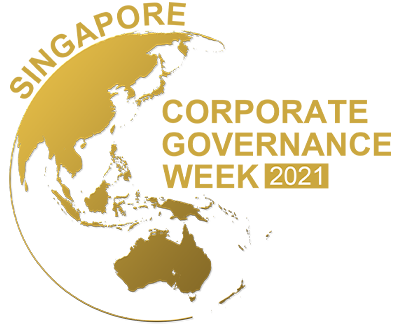

Covid-19 and the Breakdown of the Shareholder-Centric Model: An Inflection Point for Corporate Governance?
13th October, Wednesday, 04:00 PM - 05:30 PM
Covid-19 has changed the corporate landscape and potentially has a profound effect on the corporate governance landscape. What was once simple decisions are no longer so simple with multiple stakeholders to consider? For example, for companies with the luxury to have flushed with excess cash, what normally would be an easy dividend payment may not be so simple. With Covid-19 decimating the economy and looming uncertainty about the depth and duration of the crisis, the decision has become a complex matter of weighing and balancing multiple factors.
Board discussions have a range of other considerations instead of just dividend; the equity and symbolism of returning cash to shareholders at a time when employees were being laid off or furloughed; the potential future opportunities gained or lost by following (or going against) government calls for dividend cuts; the reputational and signalling effects of maintaining versus suspending or reducing the dividend; the expectations of shareholders and the proportion reliant on dividend income; the company’s cash position and strategic plans; and what would be prudent in the face of extreme uncertainty. What normally would have been a simple decision, now requires far more deliberation, let alone how to explain the company’s public perception during such a difficult time.
This is just one such example of the changing corporate environment that boards are facing. The new environment is characterized by an increasingly complex set of pressures and demands from various stakeholder groups, heightened expectations for societal engagement and corporate citizenship, and radical uncertainty about the future. These factors are complicating board decision-making and challenging the established shareholder-centric model of governance that has guided boards and business leaders for the past several decades. What then is the new paradigm for corporate governance? What are the new considerations for boards in this new age? What should boards and firms focus on? What pressures would ESG bring to the new framework? How to revise the performance matrix beyond shareholder return? What should boards do, though, when a surprise downturn renders the targets irrelevant, which is what happened in the pandemic?
04:00 PM
Panel Discussion
05:30 PM
End of Workshop
Rethinking the Company: How is a Company Going to React from Innovations and
Necessities Brought About by Covid-19
14th October, Thursday, 04:00 PM - 05:30 PM
Boards of companies that have successfully recovered from the pandemic could follow Satya Nadella, CEO of Microsoft, to “rethink” the organizational mission. Innovations born of necessity during crisis response will emerge, “like remote control of manufacturing processes, A.I. bots helping diagnose patients and more effective distance-learning technologies.” This will incorporate the efficiencies, shortcuts, ideas and designs initially developed out of necessity, while remaining “on the lookout for what is lost.” There’s even a new term, “Covid-tech”, coined to focus on technology solutions to overcome Covid-19.
Covid-19 has dramatically changed the environment boards and companies operate. With the hope of a vaccine now a reality, what are some of the possible trends that companies needs to adapt that has been brought about by this pandemic?
In addition to the Covid-19 pandemic, how are boards and companies addressing the continued volatility created by ongoing uncertainty? Tactical and strategic implications of continued political, social, economic and regulatory volatility, in addition to concerns with economic growth, trade conflict, income and gender inequality, inflation and continued societal fragmentation climate, will have to be managed. How are boards re-calibrating themselves to take on these challenges? Can boards use this opportunity to improve diversity?
04:30 PM
Panel discussion
Moderator: Mr. Mark Laudi, Chief Executive Officer, Hong Bao Media Panellists:05:30 PM
End of Workshop
Corruption and Profiteering during Covid-19: The Challenge for Regulators
15th October, Friday, 10:00 AM - 11:30 AM
According to the World Economic Forum, in 2018 the global cost of corruption was $3.6 trillion, about 5 percent of global GDP, in the form of bribes and stolen money. These figures do not include the costs in terms of human suffering that exceed by far the money lost to bribery, embezzlement or fraud. During 2020, the US Department of Justice’s Foreign Corrupt Practices Act (FCPA) settlements reached record levels, with resolutions already worth $2.94bn, knocking 2019 off the top and into second spot.
Corruption is a global scourge that imposes costs in terms of human suffering that go far beyond the money lost to bribery, embezzlement or fraud. Today, as governments are ramping up pandemic response spending to unprecedented levels and shovelling it out of the door with understandable urgency and desperation, the risk of corruption and misappropriation has increased exponentially. Corruption raises the cost of business, undermines public trust and hampers growth. Whatever its shape, corruption always comes at someone’s expense!
While it is agreed that the global fight against corruption needs to be intensified to ensure economic recovery, achieve better services with taxpayers’ money and re-establish trust around the world, there is less consensus on what needs to be done. Should governments or corporations take the lead in fighting corruption? What role should each play in fighting corruption?
Supply chain fraud, cyber crime and investment scams are some of the ways criminals can take advantage of the current pandemic crisis. What due diligence measures should organizations be taking to cut their COVID-19 financial crime risks?
We need to, therefore, consider what it would take to improve the fight against corruption. Should there be more regulation? Or can a more collaborative approach with both the regulators and corporations work? What framework could be adopted?
10:30 AM
Panel discussion
Moderator: Mr. Ashok Kumar, Director, BlackOak LLP Panellists:11:30 AM
End of Workshop